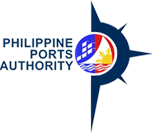12 DECEMBER 2019, MANILA—With roughly two weeks before ending 2019, the Philippine Ports Authority (PPA) is expecting to end the year on a positive note anchored on Serbisyo at Malasakit.
The PPA has been showing record-breaking performances in terms of dividends, cargo volume, revenues and completion of a huge number of port projects this year. Interestingly, PPA also marked its 45th founding anniversary this year.
PPA General Manager Jay Daniel R. Santiago said that the PPA is simply giving back to the people what they truly deserve in terms of port operations and facilities and never expected that it will result in an even better performance in almost all aspects of operations for the agency.
“It is really overwhelming that we are ending the year on the upside, far better than what we originally projected,” Santiago said.
“Our mantra really did us wonders for 2019. With the continuing leadership of Transport Secretary Arthur P. Tugade our port users and the public can expect an even better Serbisyo at Malasakit come 2020,” Santiago stressed.
Since 2016 to date, the PPA has already completed more than 200 port projects, which include, among others, the biggest and state-of-the-art passenger terminal building in Cagayan de Oro City, which was launched in July. Since then, the PPA is now undertaking some 105 port projects spread over the three main islands of the country, 45 for Luzon, 22 for Visayas and 38 for Mindanao. Out of this number, 11, 2 and 13 port projects have been completed while 15, 16 and 22 projects are ongoing, respectively. These projects are combinations of commercial and social reform ports implemented hand-in-hand with the Department of Transportation.
PPA has likewise implemented the Free Passenger Terminal Fee for Senior Citizens, Differently-abled persons, Students, Uniformed Personnel and even expanded to include Medal of Valor awardees and their next of kins. This initiative has so far totaled close to P20 million in benefits for the people since its implementation on July 15 this year.
Malasakit Help Desks are also established in each of the terminals controlled by the PPA to extend added service to the sea-going public. These desks serve as extensions of the PPA leadership in giving the much-needed aid by providing hygiene kits and fresh food during inconveniences brought about by natural disasters and even giving recognition to mothers, fathers, and grandparents during their usual special days.
To further improve the efficiency of the ports, PPA is fast-tracking its compliance with international standards by fully migrating to the Integrated Management Systems (IMS) from the Quality Management System, which the PPA has been strictly observing since 2015. Out of its 25 Port Management Offices, eight are already compliant with the IMS while 16 QMS-certified ports are now undergoing IMS certification audits. PPA’s youngest PMO that was established two years ago, Masbate, is accelerating its compliance first with QMS and eventually IMS.
The establishment of the Port Integrated Clearing Office in ports has significantly reduced transaction time in ports since it serves as One-Stop-Shop for cargo owners and vessel operators resulting in faster turnaround time for vessels and reduced dwell time of cargoes inside the ports, thus, reducing cost on all stakeholders.
Similarly, the PPA is also in the advanced stages in its compliance with the Ease of Doing Business (EODB) Act in its bid to further reduce bureaucratic red tape for its internal and most especially its external clients by providing step-by-step procedures and penalty thereof for non-compliance with the agreed EODB timelines.
PPA has been continuously augmenting its port police force as part of the agency’s effort in ensuring the safety and security of passenger transport and cargo hauling as well as implementing local and international security measures and protocols. Just recently, the second batch of graduates from PPA’s port police program received their certificates and are now ready for deployment to the 114 ports within the PPA port system.
“These are only several of the projects we have undertaken and completed since we celebrated our 45th founding anniversary in July. Next year, several projects will go online and will significantly further benefit the port community,” Santiago said.
“These improvements were undertaken to further provide better commuting experience and cargo-handling operation to the country’s port-using public as well as in line with the agency’s vision of providing globally competitive port services to its stakeholders,” Santiago added.
Among the on-going projects GM Santiago is very particular about include:
- The establishment of the country’s first-ever government-owned Shipbuilding and Shiprepair facility. This project will reduce the country’s dependence on second-hand imported ships as this facility will manufacture tailor-fit ship design for interisland transportation as well as offer affordable financing schemes for vessel owners and operators.
- Implementation of a Centralized Ticketing System for ports and vessels. This initiative, which is expected to take shape within the first quarter of next year, will improve maritime safety as it will eliminate ticket scalping and overbooking of vessels.
- Uniform Port Tariffs for Tier 3 Ports under the Port Terminal Management Regulatory Framework (PTMRF). This project provides for a uniform tariff as well as provides for the formula on port tariff rate adjustment, frequency of tariff rate adjustment and its procedures as well as the bidding out of Tier 3 ports.
- Privatization of Ports. Initially, the PPA is evaluating the unsolicited proposals to develop the Iloilo Commercial Port Complex (International Container Terminal Services, Inc.), Port of General Santos (Kudos Trucking Corporation), and Davao’s Sasa Wharf (Chelsea Logistics and Infrastructure Holdings).
Aside from the above-mentioned projects, the PPA is also looking at tapping Japanese expertise, particularly that of the Yokohama Port Corporation, in crafting the PPA’s Sustainable Energy Masterplan in order to reduce the agency’s carbon footprints in compliance with the International Maritime Organization laws and protocols.
Plans are also in the pipeline to use the same Japanese expertise in the drafting of engineering plans for select cruise-tourism ports and to build disaster-resilient ports.
“The current administration is making sure to put extra efforts in initiating, implementing and most importantly, completing port projects nationwide aiming to achieve international standards toward achieving comfortable lives for all sea-going passengers,” Santiago added.
Over the span of 45 years, the PPA has so far injected some P111.5B for the development of ports as well as cashed-out P9.2B for repairs and maintenance of requirements of ports in the country.
###



